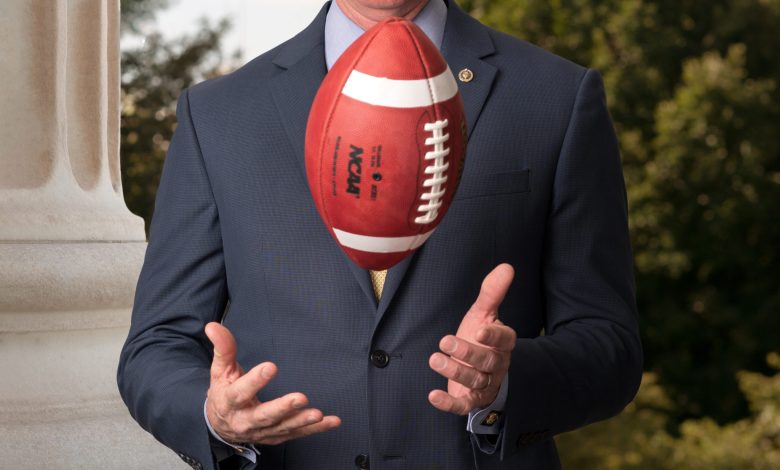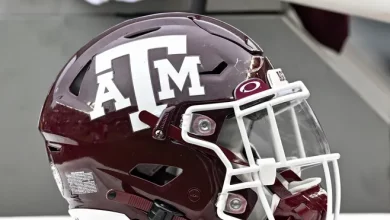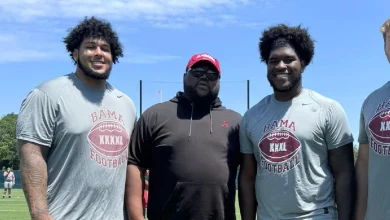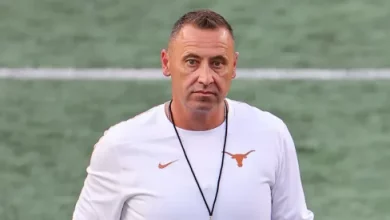Goodman: Can Tommy Tuberville improve college football? Readers have their opinions.

Goodman: Can Tommy Tuberville Improve College Football? Readers Have Their Opinions
The world of college football has always been one filled with passionate debates, from which teams deserve a playoff spot to how the game should be governed. One of the most intriguing and polarizing figures in recent years is Tommy Tuberville, the former head coach who is now serving as a U.S. Senator for Alabama. While Tuberville made a name for himself in the world of college football as a successful coach at Auburn University, his transition into politics has raised some serious questions about his potential to improve the landscape of college football. As Tuberville takes on the role of Senator and begins to weigh in on the future of the sport, many are wondering whether he can use his influence to make meaningful changes for college football fans, players, and coaches alike.
Over the past few months, several key pieces of legislation have been proposed and discussed in Washington D.C. that directly impact the college football world, from NIL (Name, Image, and Likeness) regulations to questions of player compensation and safety. Tuberville, given his background in coaching, has become one of the more prominent voices in this conversation. But with such a complex issue, opinions on Tuberville’s potential to improve college football are split. While some readers believe that his extensive coaching experience provides him with the knowledge needed to make informed decisions, others are skeptical of his ability to bring about real change.
In this article, we’ll explore the different viewpoints on whether Tommy Tuberville can improve college football, taking into account both the pros and cons of his involvement in the sport’s future. We’ll dive into reader opinions, analyze his potential impact on the game, and assess the questions that remain unanswered as Tuberville continues his political career.
Tommy Tuberville’s Legacy in College Football
Before delving into the debate over his potential to improve the sport, it’s important to understand Tommy Tuberville’s background and his accomplishments within the college football world. Tuberville’s coaching career spanned several decades, during which time he became one of the most respected names in the business. He started his head coaching career in 1995 at Ole Miss, where he spent three years before moving on to Auburn University in 1998. Tuberville’s tenure at Auburn is where he truly made a name for himself, guiding the Tigers to multiple SEC West titles and an undefeated season in 2004. His teams were known for their solid defense, disciplined play, and a tough, competitive edge.
Tuberville’s ability to recruit top talent and lead his teams to consistently competitive seasons made him a standout figure in the college football world. He coached Auburn for over a decade, amassing a record of 85-40, which is widely regarded as impressive considering the intense competition within the Southeastern Conference (SEC). Tuberville’s success at Auburn earned him the respect of coaches, players, and fans alike. Even after his coaching career came to an end in 2017 at Louisiana-Lafayette, Tuberville remained a well-known and influential figure in the world of college football.
However, Tuberville’s transition from football coach to U.S. Senator in 2020 marked a significant shift in his career. As he entered the political sphere, many were curious to see how his background in coaching and his connections to college football would influence his political decisions, particularly when it came to issues like player compensation, college athletics regulations, and the future of the sport in general.
The Case for Tommy Tuberville Improving College Football
Supporters of Tommy Tuberville’s influence in college football argue that his deep understanding of the sport gives him a unique advantage in crafting policies that can address some of the issues facing college football today. Tuberville’s experience as a coach provides him with a perspective that is often missing in legislative debates, where lawmakers may not fully understand the inner workings of college athletics.
One area where Tuberville has the potential to make a real difference is player compensation. The advent of NIL (Name, Image, and Likeness) agreements has changed the college football landscape, allowing players to profit from their personal brand. While many coaches and administrators have expressed concerns about the direction NIL is taking, Tuberville has voiced a desire to regulate the system more effectively to ensure fairness and sustainability. Tuberville’s background as a coach could allow him to understand the nuances of the issue and work to create policies that protect the interests of both players and schools. His knowledge of recruiting and the pressure players face to succeed on the field could provide him with insights into how to structure NIL deals in a way that benefits all parties involved.
In addition, Tuberville’s background gives him a strong understanding of the importance of player safety. College football has seen a growing emphasis on concussion protocols and long-term health concerns in recent years. With his experience as a coach, Tuberville is well-positioned to advocate for policies that protect players from undue risks while still allowing them to compete at the highest level. His voice in the conversation surrounding player safety could push for regulations that better protect athletes, ensure fair treatment, and improve overall player welfare.
Moreover, Tuberville’s political platform provides him with a level of influence that could be key in shaping the future of college football. As a U.S. Senator from Alabama, Tuberville represents a state with deep ties to college football, especially with Alabama and Auburn both being prominent programs. His ability to influence other lawmakers and bring attention to the issues facing college football could lead to significant legislative changes that benefit players, coaches, and fans alike. His position allows him to act as a bridge between the college football world and the political sphere, potentially pushing for reforms that align with the sport’s best interests.
Reader Opinion #1: “A Much-Needed Voice for College Football”
One reader, Jeff in Birmingham, argued that Tuberville’s background as a coach makes him “uniquely qualified” to address some of the issues currently plaguing college football. He believes that Tuberville’s experience with recruiting, managing student-athletes, and navigating the pressures of big-time college football will allow him to make informed decisions when it comes to policy-making. Jeff pointed out that “Tuberville has seen the game from the inside out,” and therefore he’s more likely to consider the welfare of players when crafting laws. For Jeff, Tuberville’s transition from coaching to politics provides an opportunity to have a real advocate for college football at the federal level—someone who knows what it’s like to be on the sidelines, making decisions in the heat of the moment.
Reader Opinion #2: “A Step in the Right Direction”
Another reader, Sarah from Tuscaloosa, believes that Tuberville can use his position to improve player compensation and establish more equity in the sport. She sees the current NIL landscape as “a mess,” with some players receiving far more than others. Sarah is hopeful that Tuberville’s legislative background will allow him to push for a more structured and equitable system, making NIL deals fairer across the board. “We need someone who can get things done in Washington to tackle these issues. Tuberville has the credibility and connections to make real change,” Sarah wrote.
The Case Against Tommy Tuberville’s Ability to Improve College Football
While many view Tuberville’s political career as a chance to bring positive change to college football, there are others who are more skeptical about his ability to make a meaningful impact. Critics argue that while Tuberville has extensive coaching experience, his move to politics has not proven that he has the skills necessary to address the complex issues facing college football.
One concern raised by critics is that Tuberville lacks the political experience required to navigate the intricacies of Washington D.C. While Tuberville has been a U.S. Senator since 2021, his tenure in office has been marked by controversy, especially around his stance on various issues related to sports and education. Critics argue that Tuberville’s political focus has been more on issues that are not directly related to college football, such as immigration and tax policy, rather than prioritizing the needs of the student-athletes he once coached.
Additionally, some feel that Tuberville’s transition from coach to politician might mean he’s out of touch with the day-to-day realities of college football today. The game has evolved significantly since Tuberville was on the sidelines, especially with the rapid expansion of NIL deals, transfer portal regulations, and changes to playoff structures. Some readers feel that Tuberville, while knowledgeable about the game of football, might not have the deep understanding of how college athletics has transformed in the past few years. His legislative priorities might not reflect the most pressing issues for players, coaches, and fans alike.
Reader Opinion #3: “Inexperienced and Out of Touch”
One reader, Mark from Mobile, expressed concern about Tuberville’s ability to improve college football given his lack of political experience. “He may have been a good coach, but he’s not qualified to handle the intricacies of policy-making,” Mark wrote. He argued that Tuberville’s focus on national issues like taxes and immigration detracts from the urgent need for policies that address the changes college football is going through. Mark worries that Tuberville might be more interested in using his position for political gain than actually advocating for the betterment of college football.
Reader Opinion #4: “The System is Broken, and Tuberville Is Part of the Problem”
Another reader, Jessica from Huntsville, suggested that Tuberville’s involvement in college football reform could be detrimental rather than helpful. “College football is already overly commercialized, and Tuberville was a part of that system,” she wrote. Jessica believes that the NCAA, in conjunction with schools, has created an environment where the players are exploited for profit, and that Tuberville, as a former coach, might be too ingrained in this system to make meaningful change. She questioned whether Tuberville would be willing to challenge the status quo in a way that truly benefits players, rather than simply reinforcing the system that has led to commercialization and inequality in college sports.









